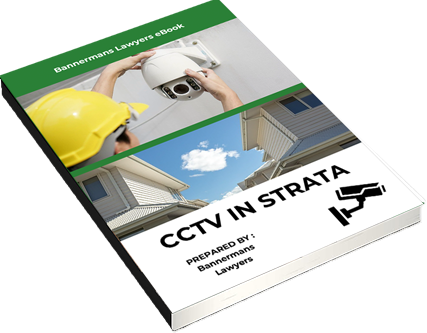- About Us
-
Legal Services
- Advice on the Design & Building Practitioners Act
- Boundary Disputes Advice
- Boundary Disputes Legal Representation
- Building Contract Advice
- Building Defects Advice
- Building Defects NCAT Legal Representation
- Collective Sale Advice
- Council Approval Advice
- Home Owners Claims
- Home Owner NCAT Legal Representation
- Strata Disputes Advice
- Strata Disputes NCAT Legal Representation
-
Legal Products
- Amenities Agreement
- Building Management Agreement
- By-Law and Additional Services Agreement with Strata Lot Owners
- Cleaning Agreement
- Community Schemes Agency Agreement
- Compliance Pack
- Pre-registration Consultancy Agreement
- Renovation By-Laws
- Starter Pack
- Strata Management Agency Agreement
- Stratum Subdivisions (BMC's) Agency Agreement
- Tailored By-Laws
- WH&S Package for Building Owners
- WH&S Package for Strata Agencies
-
Resources
- Bannermans Find Out Quizzes
- Renovation Approval & By-Laws
- CCTV in Strata
- Strata Committee Manual
- NCAT Strata Disputes ebook
- By-Law FAQ ebook
- Building Defects Guide Part 1
- Building Defects Guide Part 2
- Building Defects Guide Part 3
- Aluminium Cladding Fire Safety Guidelines
- Top Ten FAQs in Strata
- Pets By-Laws
- What Do I Own? (Infographic)
- Portals
- Contact Us
